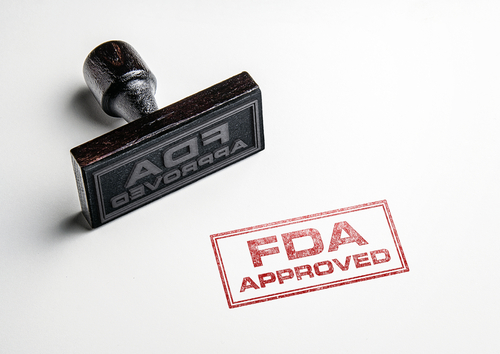The U.S. Food and Drug Administration (FDA) approved the non-radioactive tracer Magtrace for the pre-surgical detection of lymph nodes affected by breast cancer.
Used in combination with Sentimag Magnetic Localization System, Magtrace allows surgeons to determine which lymph nodes might be affected by breast cancer cells. Doctors collect a biopsy from those nodes to look for signs of cancer before a patient undergoes breast cancer surgery.
“We’ve been watching this technology become established in Europe over the past few years, and have been eagerly awaiting its availability in the US,” Michael Alvarado, professor of surgery at The University of California, San Francisco, said in a news release.
“After 18 months of using the Sentimag platform with Magseed for lesion localization, we’re really excited to add the sentinel node biopsy capability with Magtrace,” Alvarado said.
The typical treatment for breast cancer is to surgically remove the tumor and determine whether the cancer has spread. For that, clinicians must map the neighboring lymph nodes and determine which are connected to the tumor. This requires the use of radioactive drugs and blue dyes.
Magtrace is a non-radioactive liquid marker designed by Endomag to reveal the route cancer cells are most likely to take when spreading from the primary tumor site. It is a dark solution of tiny iron particles coated with a sugar-like compound (carboxydextran).
Unlike other available tracers, Magtrace can be injected into the breast tissue up to a week before surgery, and can be detected just 20 minutes after administration. This is because of its size: small enough to be quickly absorbed, but big enough to be retained in the lymph nodes.
By placing Sentimag — a handheld magnetic probe — on a patient’s skin near the tumor site, the system will give a visual and audio signal when it detects Magtrace particles, allowing researchers to locate the lymph nodes into which a tumor drains.
The identified node or nodes are removed, without disrupting others in the armpit, and tested for the presence of cancer cells to help determine further treatments.
In clinical studies, Magtrace and Sentimag were found to perform as well as traditional techniques for localizing lymph nodes, such as radio-labeled tracers and blue dye, but without radiation exposure.
“The addition of Magtrace to the platform offers clinicians greater options and more flexibility when treating their patients and will help transform the way breast cancer is treated in the US,” said Eric Mayes, CEO at Endomag. “The Sentimag platform is the first and only non-radioactive solution approved in the US that can perform lesion localization and sentinel node biopsy.”
Magtrace will be distributed in the United States by Leica Biosystems.

